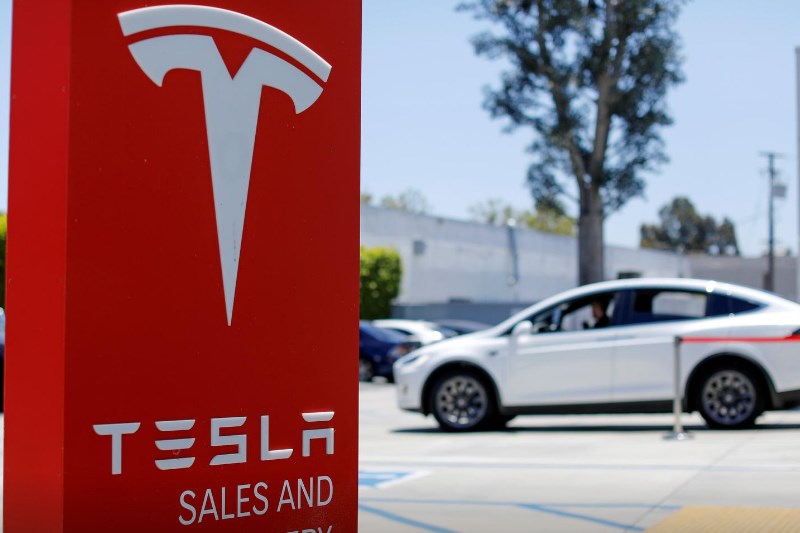By Tom Hals
WILMINGTON, Delaware (Reuters) – Tesla (NASDAQ:) shareholders will vote on June 13 to ratify Elon Musk’s $56 billion pay package, which a Delaware judge voided in January because she found he improperly controlled the process. They will also be asked to approve moving the company’s legal home to Texas from Delaware.
Below is a look at the potential legal fight standing in the way of Musk’s pay day.
WHAT IMPACT WILL THE SHAREHOLDER VOTE HAVE?
If shareholders reject the move to Texas and Musk’s pay, it will vindicate the court’s ruling that described Musk’s pay as “unfathomable,” and would be a stinging defeat for a board that critics say is dominated by Musk.
If shareholders vote to pay Musk, it will likely set off another legal challenge. Where that challenge takes place might depend on the vote to move Tesla’s legal home to Texas.
IF TESLA BECOMES A TEXAS CORPORATION
Lawyers for Richard Tornetta, the shareholder who sued in Delaware in 2018 over Musk’s pay, have said in court filings they fear the shareholder vote is a bid to use a Texas court to undo the January ruling.
For her part, the judge in Delaware, Chancellor Kathaleen McCormick (NYSE:), said on May 28 she was assured by Tesla’s attorneys the company will not litigate any dispute over the shareholder vote outside Delaware.
IF TESLA REMAINS A DELAWARE CORPORATION
The judge in Delaware still has to decide how much to award to Tornetta’s legal team as a fee payable by Tesla before Musk and Tesla can appeal. The shareholder legal team requested $6 billion. A hearing is scheduled for July 8.
Tesla’s legal team has said a vote ratifying Musk’s pay would materially affect the Delaware proceedings, although they did not explain how. If the pay package is ratified at the shareholder meeting, it will almost certainly be challenged by shareholders opposed to it.
McCormick could include such a challenge in the ongoing Musk pay case or create a new lawsuit. If it were a new case, that would allow Tesla and Musk to appeal the January ruling to the Delaware Supreme Court while the Court of Chancery sorted out challenges to the shareholder vote, which could take months or even years.
TESLA’S NOVEL USE OF A RATIFICATION VOTE
Tesla’s ratification vote is based on Delaware law that is meant to allow companies to clean up technical defects in corporate transactions, like sales of stock that were not properly authorized. The company described its approach as “novel” in its proxy filing.
No one has filed a legal challenge, but Charles Elson, a former University of Delaware professor who specialized in corporate governance, said in a court filing that ratification cannot be used as Tesla is applying it – to correct a breach of fiduciary duty by a board.
CHALLENGE TO THE VOTE
Tesla shareholders could also challenge the vote, citing Musk’s efforts to sway voting. Musk on May 18 responded “yes” to a post on X that said if Musk gets the 25% equity stake he has demanded along with incorporating the company in Texas and his 2018 pay package reinstated, then AI and robotics stay with Tesla.
The company filed Musk’s response with the Securities and Exchange Commission as proxy material.
Musk’s veiled threat to take AI from Tesla if he does not get his pay may be a potential violation of corporate law, which prohibits directors and officers from taking business opportunities for themselves that belong to the company.
Read the full article here


